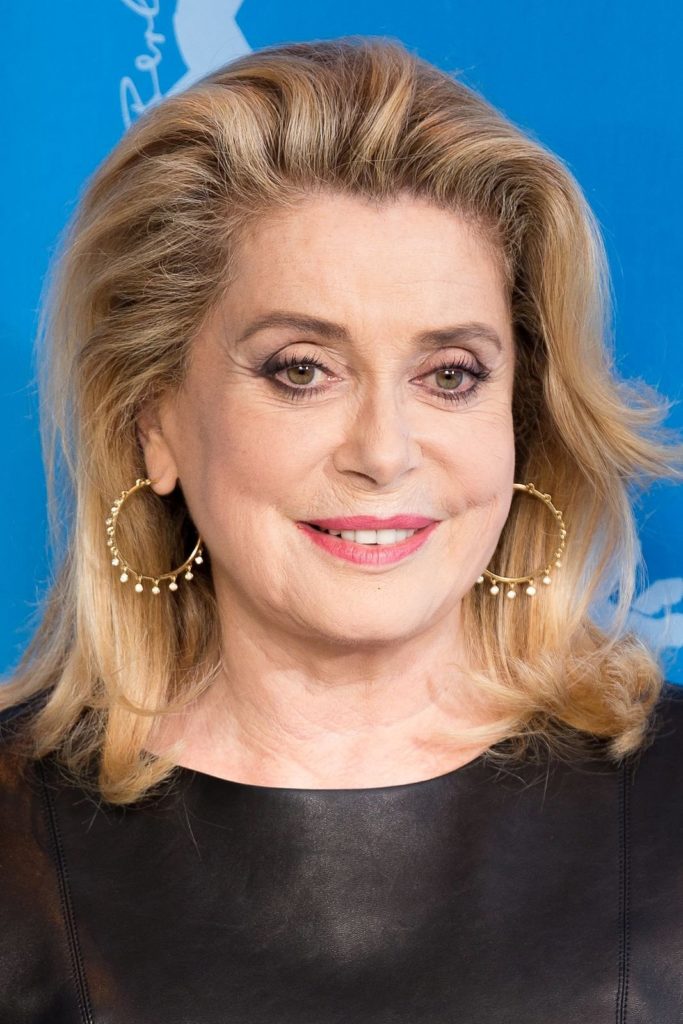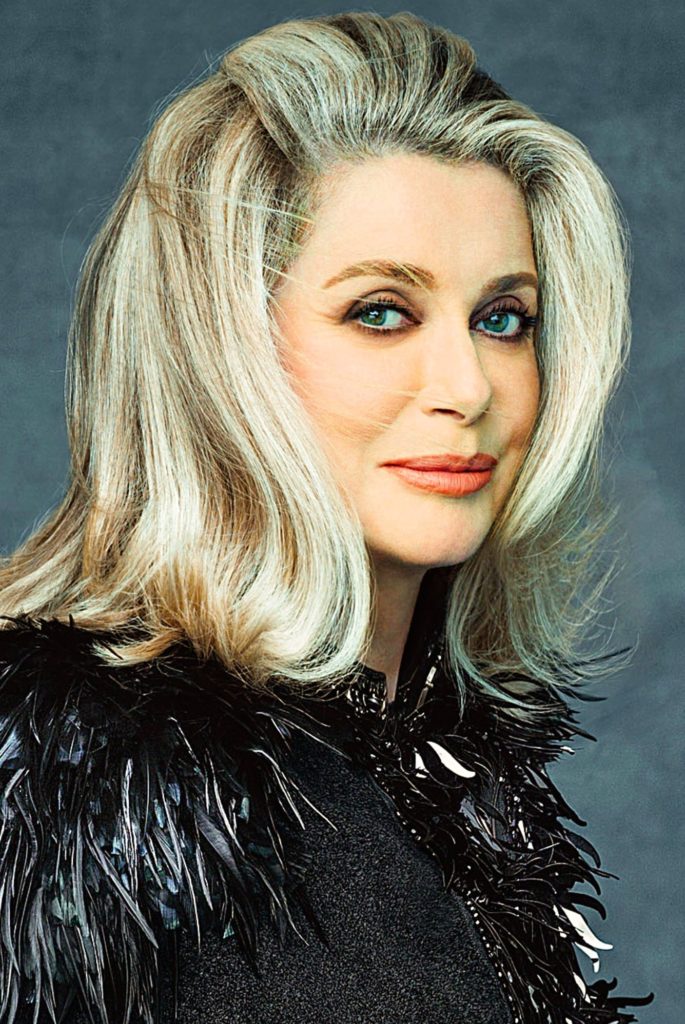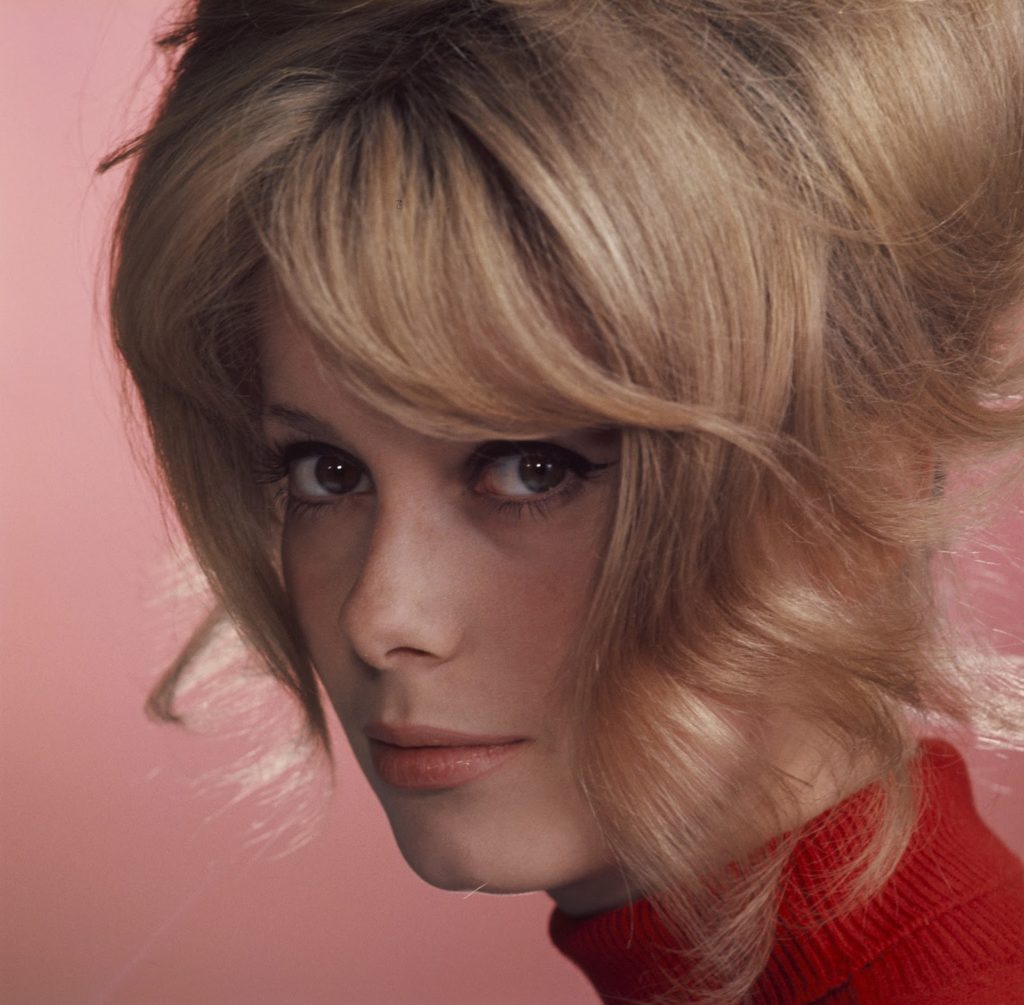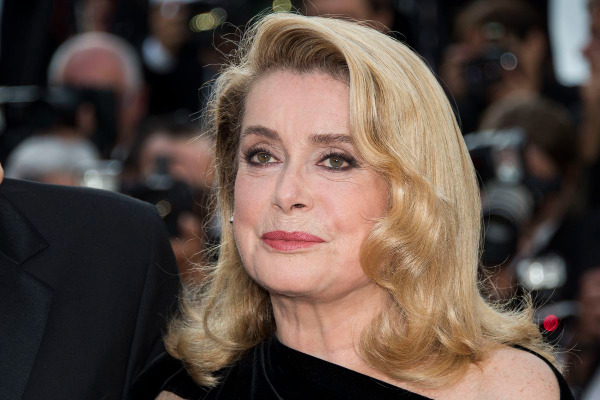One of the most well-known French actresses, Catherine Deneuve is recognized for both her parts in movies by some of the most renowned filmmakers in the world and for her stunning French beauty. In a career spanning more than five decades, she appeared in more than 120 films after making her film debut at the age of thirteen.

Catherine Deneuve’s Date of Birth
She was born Catherine Fabienne Dorléac on October 22, 1943, in Paris, France, to Renée Simonot and Maurice Dorléac. Her parents both enjoyed performing.
She has two sisters named Françoise and Sylvie Dorléac as well as half-sister Danielle, who was born in her mother’s previous relationship.
Catherine Deneuve’s Education
She attended Catholic universities. She decided to use the maiden name of her mother, Deneuve, as her stage name. She speaks English, Italian, and to a smaller scale German, all with ease.

Catherine Deneuve’s Career
In 1957, when she was thirteen years old, she made her cinematic debut in André Hunebelle’s “Les Collégiennes.” She was given the name Catherine Dorléac in the movie, which also featured her younger sister Sylvie Dorléac. Later, she changed her stage name to Catherine Deneuve.
After that, she appeared in other movies but received little recognition, including “Les Portes claquent” (1960), “Homme à femmes” (1960), “a c’est la vie” (1962), and “Vice and Virtue” (1963).
After Jacques Demy watched her performance in “L’Homme à femmes,” she won her genuine breakout role in the 1964 romantic comedy “Les Parapluies de Cherbourg” ( “The Umbrellas of Cherbourg”). She became famous because of the movie.
Deneuve went on to provide a string of outstanding and breath-taking performances that showcased her multiple ranges of acting abilities.
She starred as a psychotic murderer in Roman Polanski’s 1965 horror film “Repulsion,” as a housewife who becomes a prostitute in Luis Bunuel’s 1967 classic “Belle de Jour,” and in 1970’s “Tristana,” another outstanding film by the director.
Her outstanding performances in movies like “The April Fools” (1969), “Mississippi Mermaid” (1969), “Hustle” (1975), “The Last Metro” (1980), and “Agent Trouble” (1987), among many others, further established her position in the entertainment industry. For “The Last Metro,” she received her first “César Award for Best Actress.”
She and several women who acknowledged having had abortions signed the “Manifesto of the 343” in 1972, putting themselves at risk of legal action.
In 1975 and 1980, she sang a duet with Bernadette Lafont and Gérard Depardieu. She played the bisexual vampire Miriam Blaylock in one of her American movies, Tony Scott’s 1983 “The Hunger.”
She developed a loyal fan base among lesbians in the US because of her role in the movie.
She created her own fragrance, “Deneuve,” in 1986. She made her producing debut in 1988 with the movie “Drôle d’endroit pour une rencontre.”

The 1992 movie “Indochine,” which was directed by Régis Wargnier and earned her a nomination for the Academy Award for Best Actress, was one of her most important pictures.
She won her second “César Award for Best Actress” for her performance as Eliane in the movie, for which she received widespread praise.
My Favorite Season (1993) and Thieves (1996), both directed by André Téchiné, are two of her famous 90s movies. She was nominated for the “César Award for Best Actress” for both of them. She also appeared in Leos Carax’s problematic 1999 film “Pola X.”
She also contributed vocals to duets with Alain Souchon, Joe Cocker, and Malcolm McLaren. Nicole Garcia’s 1998 film “Place Vendôme” not only earned her the Volpi Cup at the Venice Film Festival, but she also received praise for her performance as Marianne Malivert.
She was so moved by the 1996 film “Breaking the Waves” that she sent Lars von Trier a letter expressing her desire to work with him.
As a result, she was cast in 2000 in a supporting part as Kathy in Trier’s musical drama “Dancer in the Dark.” For her performance, she received a nomination for the “Satellite Award for Best Supporting Actress – Motion Picture.”
She appeared in the celebrity François Ozon film “8 Women,” which was released in 2002. She received two honors for her work in the movie: the Silver Bear Award for Best Ensemble Cast and the European Film Award for Best Actress, both given at the Berlin International Film Festival.
Her journal “A l’ombre de moi-meme,” which was translated into English as “Close Up and Personal: The Private Diaries of Catherine Deneuve” in 2005, details her experiences working on the movies “Indochine” and “Dancer in the Dark.”
The Musketeer (2001), A Christmas Tale (2008), Poetiche (2010), The Beloved (2011), In the Courtyard (2014), and Standing Tall are some of her other famous 21st-century productions (2015).
Her future movies include “Le Cancre” by Paul Vecchiali and “The Midwife” by Martin Provost, both of which are scheduled for 2016 and 2017 releases, respectively.
She was connected to a number of companies, such as “American Home Products,” “L’Oréal Paris,” and “Louis Vuitton.” Deneuve also creates greeting cards, shoes, jewelry, and spectacles.


